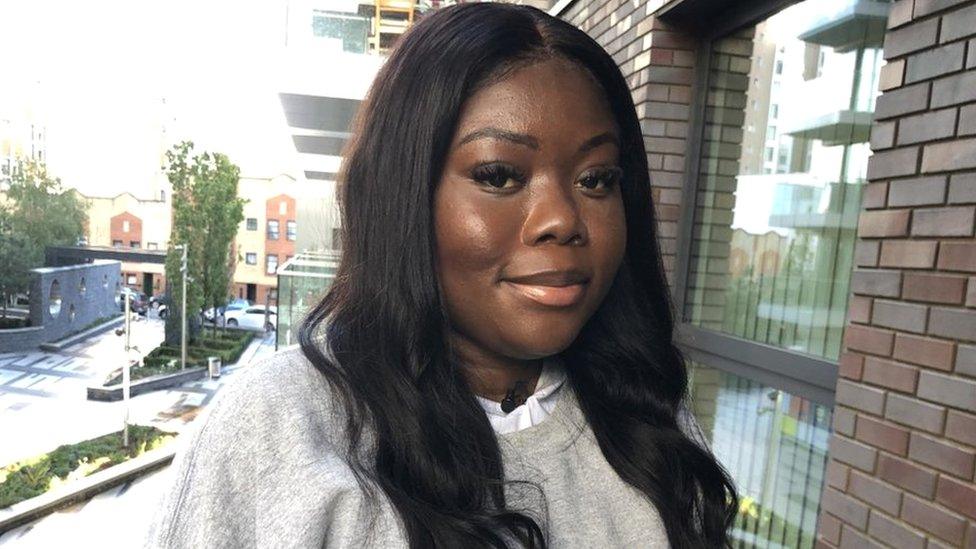Lab-grown blood gives hope says sickle cell sufferer
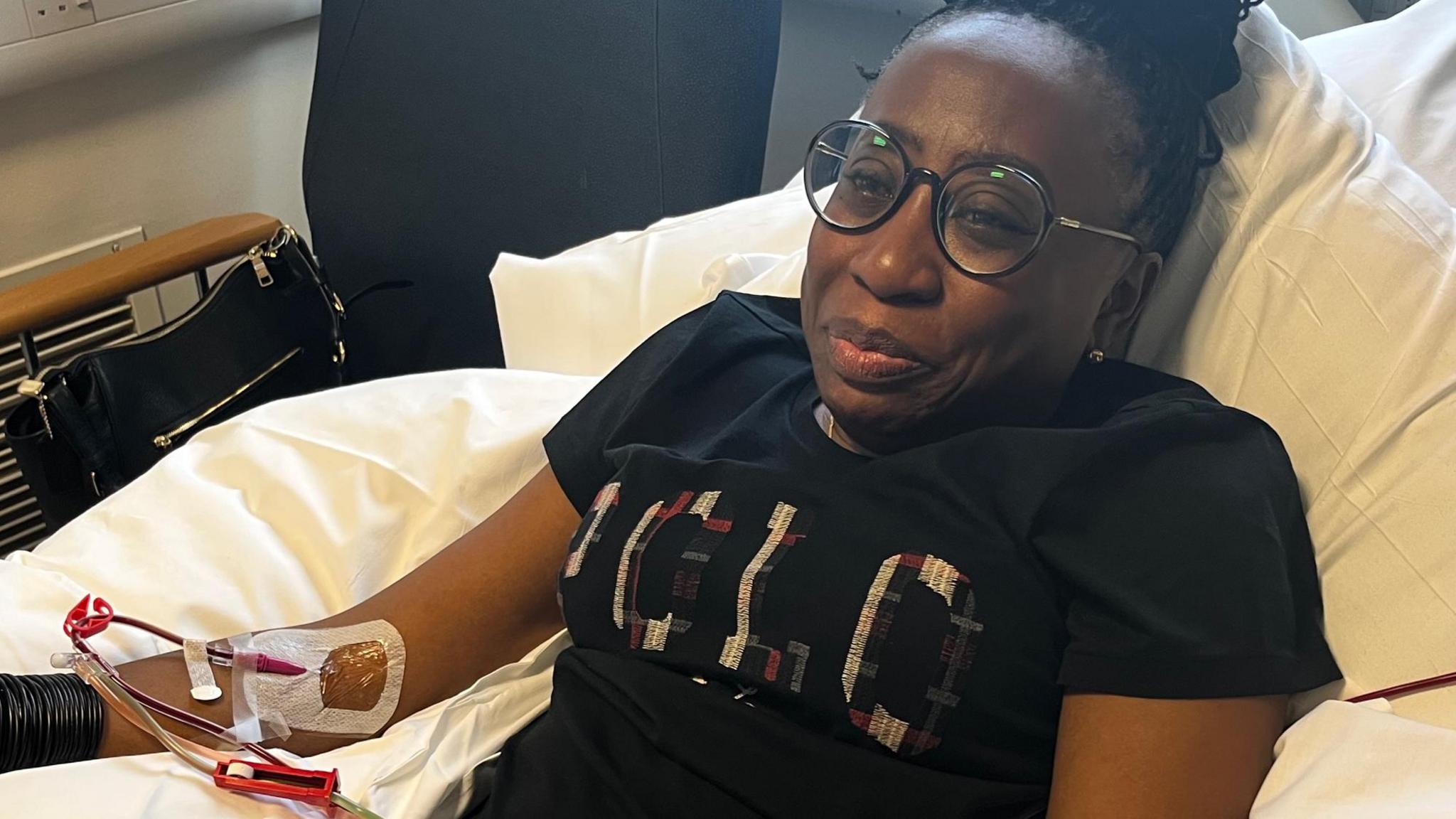
Toks Odesanmi has to have blood transfusions every six to eight weeks
- Published
A women with sickle cell disease said the possibility of lab-grown blood has given her "hope" for the future.
The aim of the new research is to help those with ultra-rare blood groups who need regular transfusions.
Toks Odesanmi has sickle cell disease and goes to Addenbrooke's Hospital in Cambridge every six to eight weeks for new red blood cells.
The 48-year-old from Colchester said after a transfusion it was like "getting a fresh lease of life".
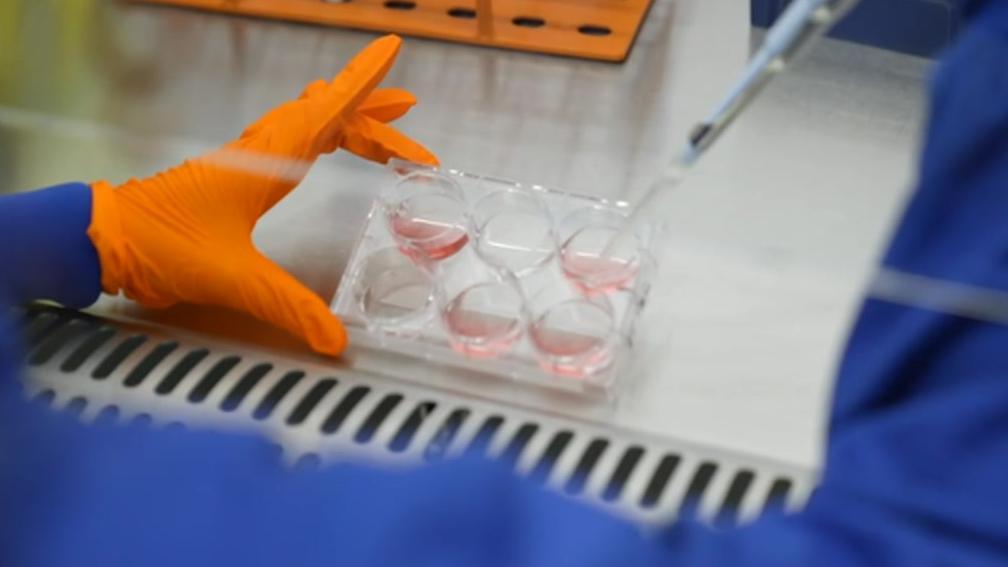
The blood is made using stem cells which are encouraged to grow in large numbers in the labs
The team at Addenbrooke's and the University of Cambridge were working on the study with others in Bristol, London and at NHS Blood and Transplant.
So far, only two people have taken part in the trial, receiving tiny amounts of the blood to see how it reacts with the body.
Ultra-rare blood groups are harder to source and if the blood is not a precise match then the body starts to reject it and the treatment can fail.
Affecting 15,000 people in the UK, sickle cell disease is incurable and requires regular blood transfusions.
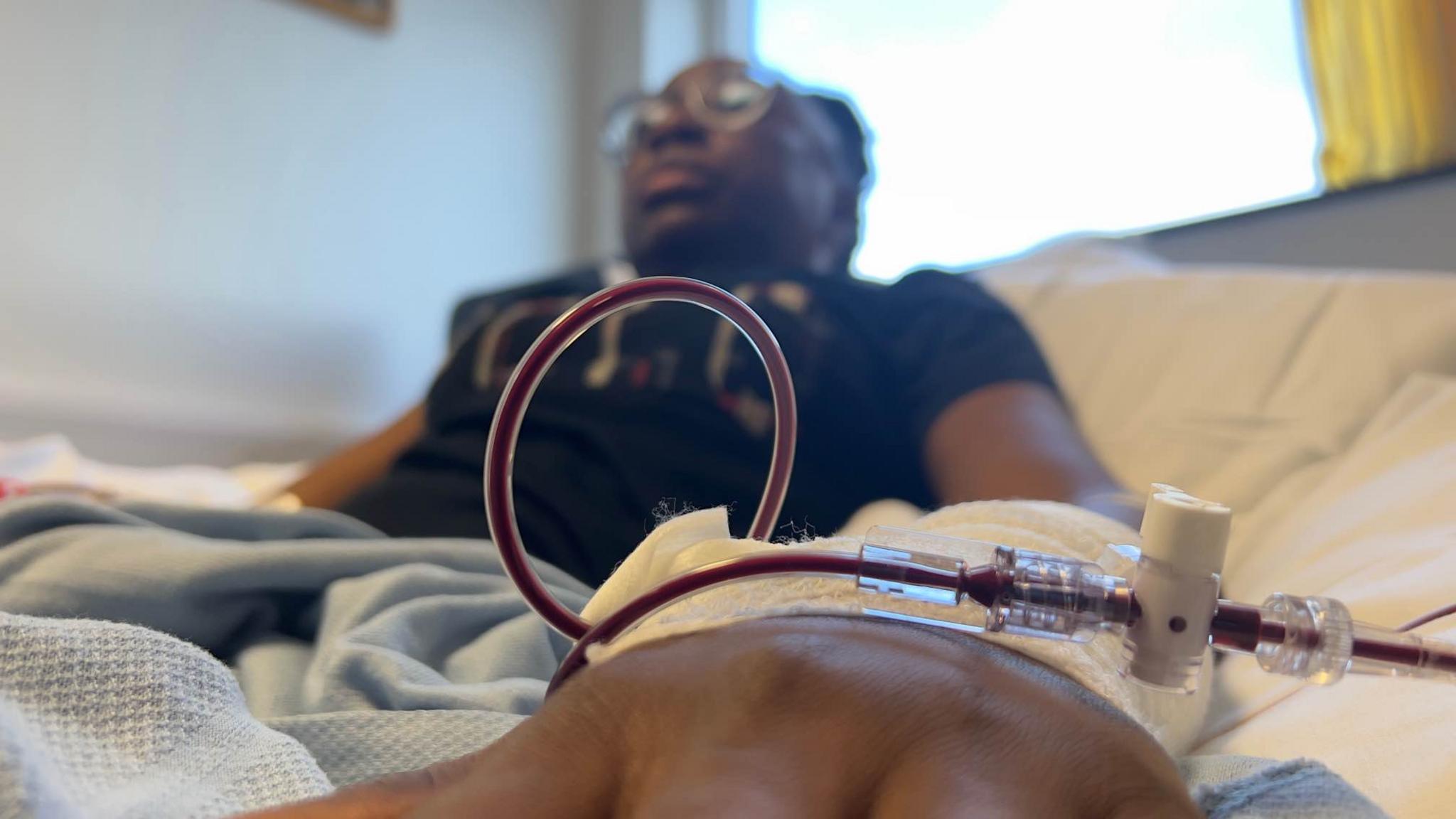
The 48-year-old said the blood transfusions "freshened" her body and mind
Ms Odesanmi said the condition affected the whole of her body.
She said: "I get asked, often, to describe the pain and I can't.
"I've had two hips replaced, one ankle fused, my elbow is getting weakened, my shoulder is being affected and I have a disc bulge in my lower back."
She has also had a liver transplant.
But Ms Odesanmi is hopefully the prospect of the lab-grown blood may mean fewer transfusions in the future.
"Hope is one thing we'll hold on to, hope is all we have," she said.
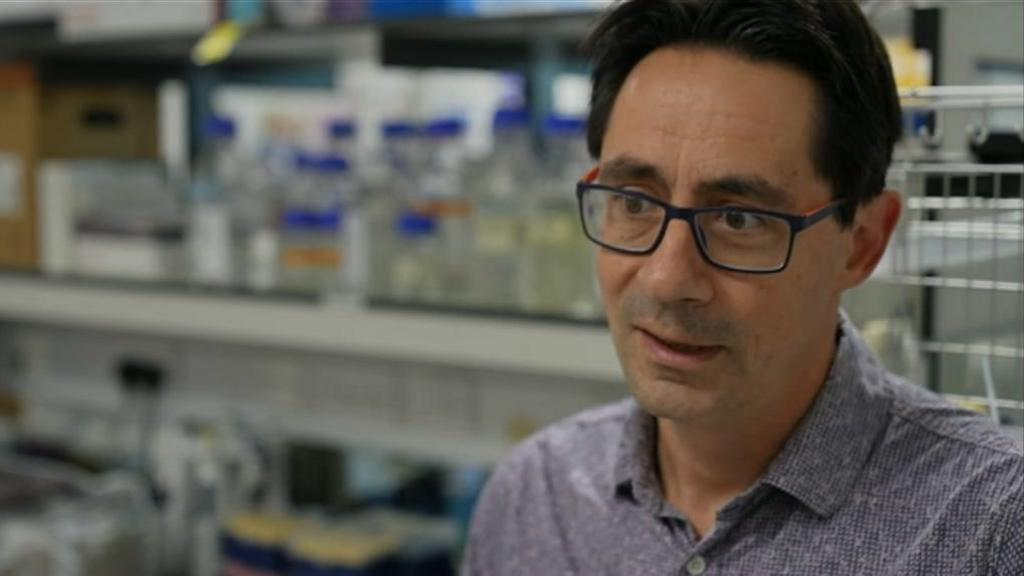
Prof Cedric Ghevaert said the lab-grown blood could transform the care of transfusion patients
Researchers hope because the lab-grown blood cells are all fresh they will perform better than a similar transfusion of standard donated red cells, which contains cells of varying ages.
Prof Cedric Ghevaert, consultant haematologist at Cambridge University Hospitals, said: "If our trial is successful, it will mean that patients who currently require regular long-term blood transfusions will need fewer transfusions in future."
He added "the technologies are there" for scaling up the production of the lab-grown blood.
What is sickle cell disease?
It is inherited from both parents, who pass on a particular gene
It is possible to carry the gene without having the disease
Nearly 300 babies are born with it each year in the UK
A simple blood test will show whether someone has it
Children with sickle cell are at greater risk of stroke
Other symptoms can include serious infections, anaemia and tiredness
Source: Sickle Cell Society / NHS UK
Find BBC News: East of England on Facebook, external, Instagram, external and Twitter, external. If you have a story for us, email eastofenglandnews@bbc.co.uk, external
- Published7 November 2022
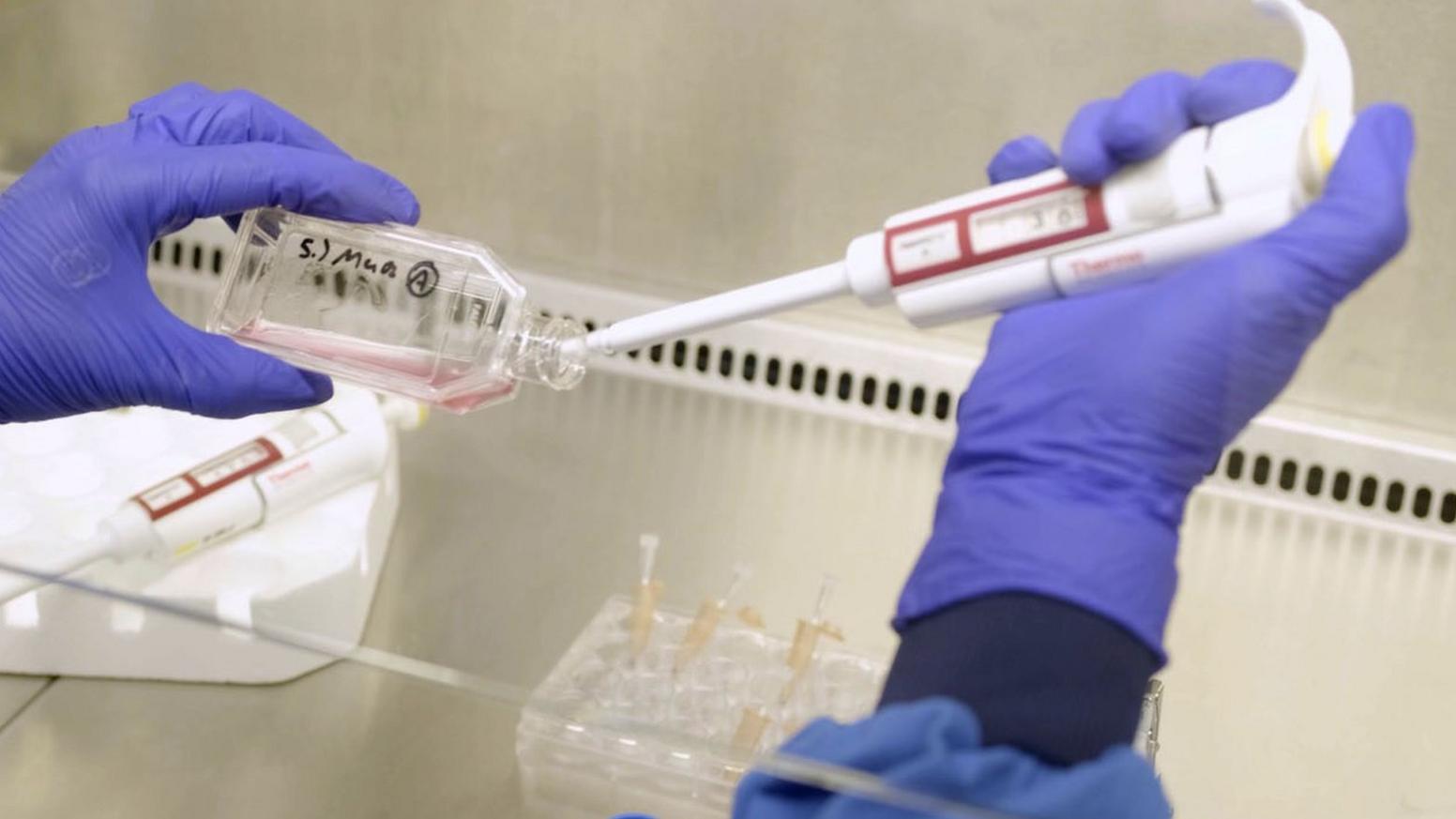
- Published20 October 2021

- Published5 October 2021
